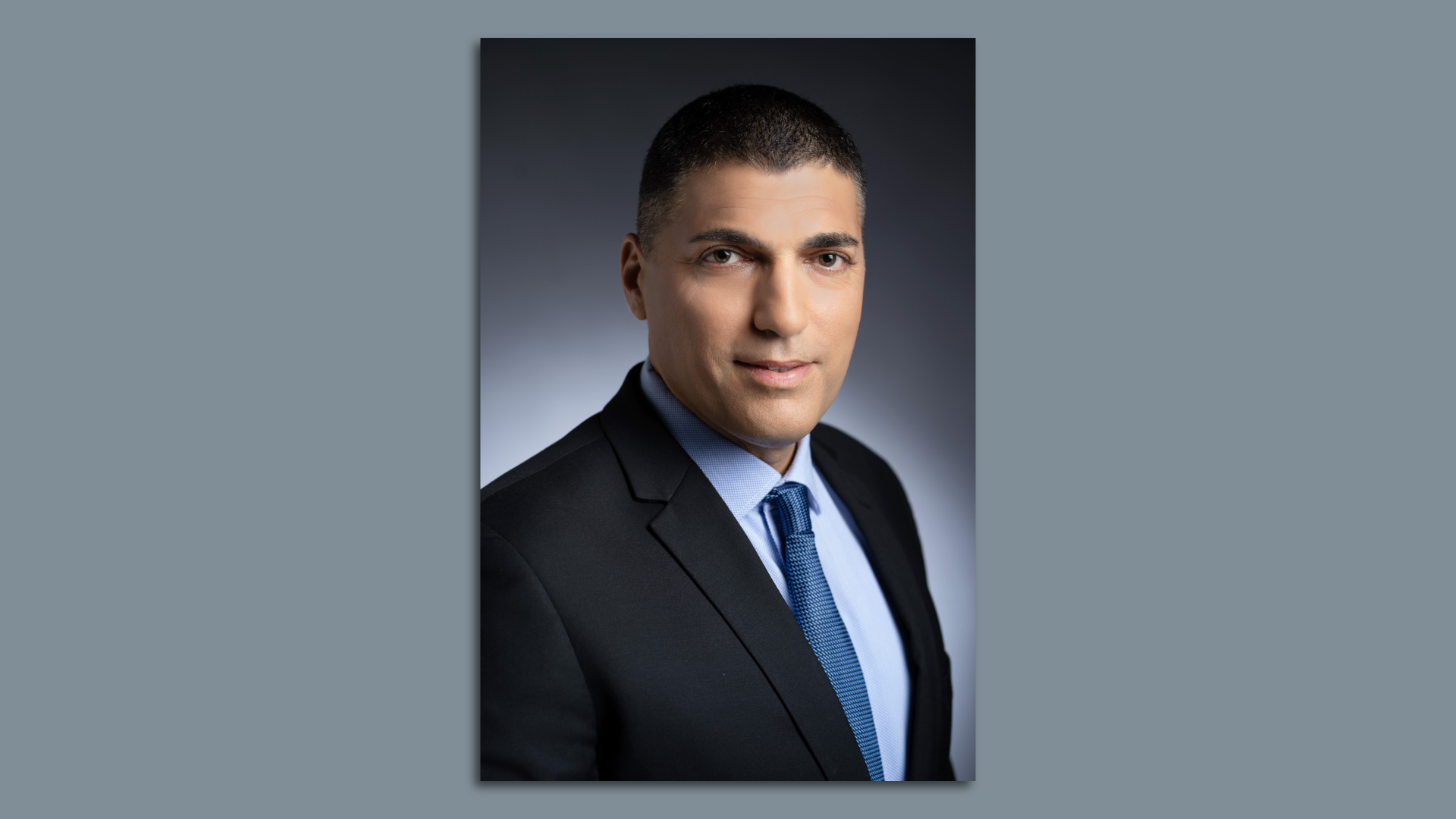Israeli spy's identity revealed as he takes on key government post
Add Axios as your preferred source to
see more of our stories on Google.

Ronen Levy. Photo: Rami Zarenger/Courtesy of the Israeli Foreign Ministry
The identity of a former Israeli spy who was in charge of Palestinian agents in Gaza and was at one time Benjamin Netanyahu's point person for secret talks in the Arab world was revealed for the first time this week after he was appointed director general of the country's Foreign Ministry.
Why it matters: Ronen Levy's new role and past experience — under the alias "Moaz" — will give him an opportunity to try to push for normalization agreements between Israel and several Arab and Muslim-majority countries, mainly in Africa.
- Levy, whose name and identity had been under a gag order for more than 20 years, will serve in a post that's been occupied by career diplomats for four decades.
- He will replace veteran career diplomat Alon Ushpiz, who held the post for the last three years.
Background: Levy, 48, climb the ranks of Israel's domestic intelligence service, Shin Bet, where he worked for more than two decades.
- By the end of his time at the agency, Levy was leading all of the Shin Bet's operations and intelligence gathering in the Gaza Strip. He also became one of the leading experts on Hamas in the Israeli intelligence community.
In 2018, Levy moved to the National Security Council in the Prime Minister’s Office and started working on Israel’s secret ties in the Arab and Muslim world.
- He played a key role in secret talks that led to Israel resuming diplomatic ties with Chad, paved the way for the normalization process with Sudan, and contributed to the reestablishment of relations with Morocco.
- Levy was also Netanyahu’s contact person with the Egyptian intelligence service regarding the situation in Gaza and indirect talks with Hamas.
Our thought bubble: Levy has very little experience in dealing with the U.S., and building good working relationships with Biden administration counterparts will be a key challenge.
- But his close personal relationship with Sudan’s military leader Gen. Abdel Fattah al-Burhan could be an asset for the U.S. when it comes to ending the military coup and getting the country back on track toward a democratic transition.
